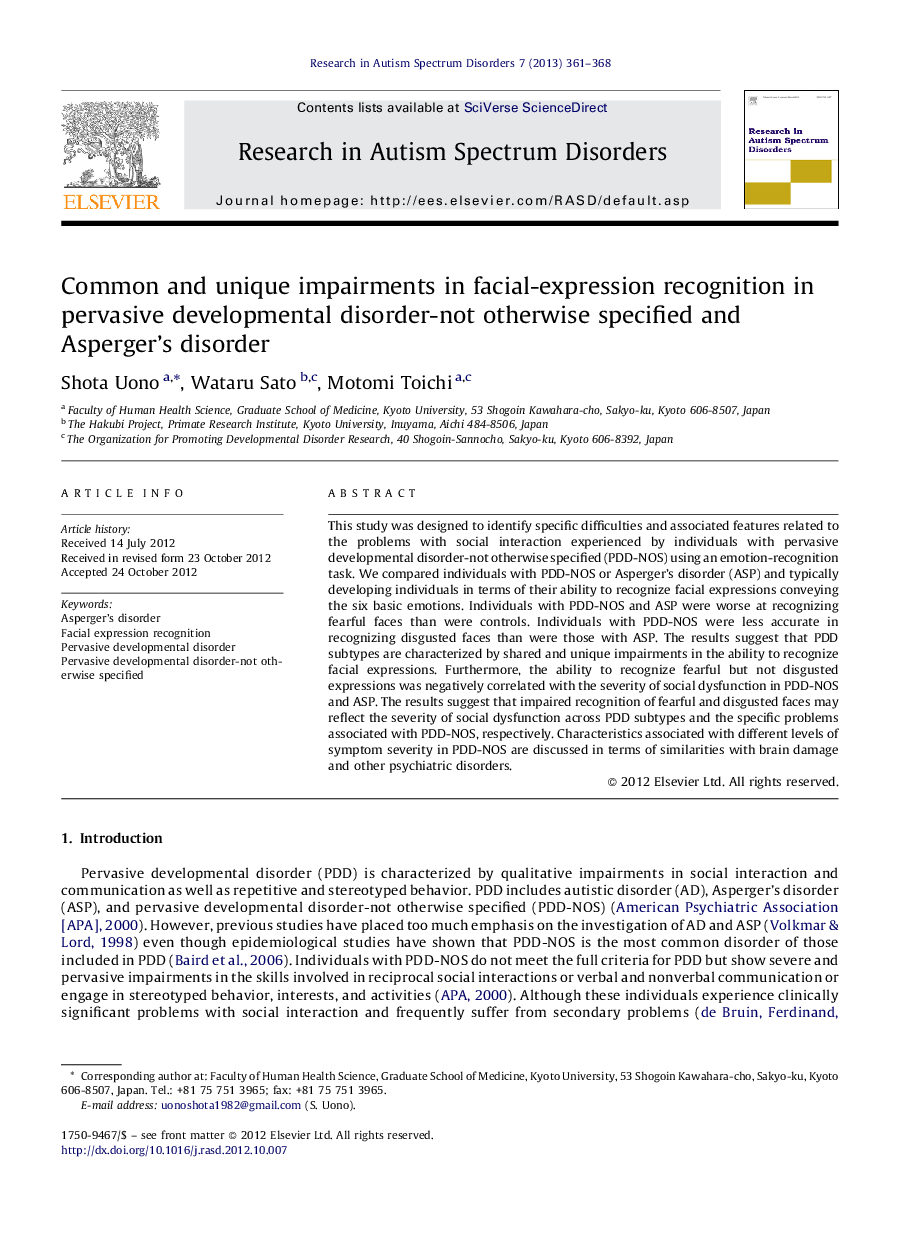| Article ID | Journal | Published Year | Pages | File Type |
|---|---|---|---|---|
| 370498 | Research in Autism Spectrum Disorders | 2013 | 8 Pages |
This study was designed to identify specific difficulties and associated features related to the problems with social interaction experienced by individuals with pervasive developmental disorder-not otherwise specified (PDD-NOS) using an emotion-recognition task. We compared individuals with PDD-NOS or Asperger's disorder (ASP) and typically developing individuals in terms of their ability to recognize facial expressions conveying the six basic emotions. Individuals with PDD-NOS and ASP were worse at recognizing fearful faces than were controls. Individuals with PDD-NOS were less accurate in recognizing disgusted faces than were those with ASP. The results suggest that PDD subtypes are characterized by shared and unique impairments in the ability to recognize facial expressions. Furthermore, the ability to recognize fearful but not disgusted expressions was negatively correlated with the severity of social dysfunction in PDD-NOS and ASP. The results suggest that impaired recognition of fearful and disgusted faces may reflect the severity of social dysfunction across PDD subtypes and the specific problems associated with PDD-NOS, respectively. Characteristics associated with different levels of symptom severity in PDD-NOS are discussed in terms of similarities with brain damage and other psychiatric disorders.
► Facial expression recognition is investigated in PDD-NOS and Asperger's disorder. ► They are worse at recognizing fearful faces than typically developing individuals. ► PDD-NOS were less accurate in recognizing disgusted faces than other two groups. ► Impaired recognition of disgusted faces may reflect the specific problems in PDD-NOS.
